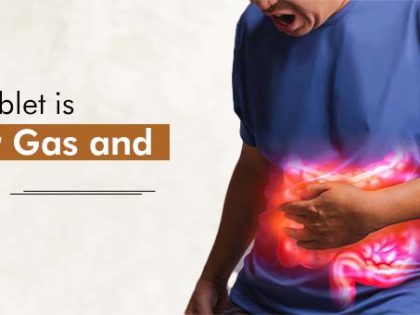Stress and Your Gut – What’s the Connection?

Ever noticed how your stomach flips before a big meeting or gets upset when you’re stressed? That’s no coincidence. The gut-brain connection is real, and stress can wreak havoc on your digestive health. Understanding this connection is the first step to managing stress and improving your overall well-being.
How Stress Impacts Your Gut
- Disrupted Digestion: Chronic stress slows your digestive process, leading to symptoms like gut bloating, cramps, and irregular bowel movements.
- Increased Acidity: Stress elevates cortisol levels, which can increase stomach acid, resulting in heartburn or acid reflux.
- Microbiome Imbalance: Stress disrupts the balance of good and bad bacteria in your gut microbiome, weakening digestion and immunity. This imbalance can impact your ability to absorb nutrients and even lead to more severe gastrointestinal disorders.
- Worsened IBS Symptoms: Stress is a major trigger for Irritable Bowel Syndrome (IBS), intensifying symptoms like diarrhoea, constipation, or severe bloating.
Signs Your Gut is Under Stress
Your gut often signals when it’s struggling. Pay attention to these red flags:
- Persistent bloating or gas
- Heartburn or acid reflux
- Irregular digestion patterns, such as constipation or diarrhoea
- Cravings for sugary or processed foods
- Unexplained stomach pain or cramps
When these signs persist, it’s a clear indicator that your gut may need extra care to restore balance and resilience.
How to Protect Your Gut from Stress
Managing stress doesn’t require a complete lifestyle overhaul. Small, actionable steps can make a big difference:
- Practice Mindful Eating:
Slow down during meals. Chewing thoroughly and savouring your food helps improve digestion and reduces the likelihood of discomfort.
- Relaxation Techniques:
Engage in stress-relieving practices like meditation, yoga, or even a few minutes of deep breathing daily. These activities reduce cortisol levels, calming both your mind and gut.
- Add Gut-Friendly Foods:
Incorporate prebiotics and probiotics into your diet. Foods like yoghurt, kefir, and sauerkraut introduce beneficial bacteria to your gut, helping to improve balance and digestion.
- Stay Active:
Light exercises such as walking or stretching stimulate digestion and reduce stress-induced gastrointestinal symptoms. Even short bursts of physical activity can improve circulation and ease tension.
- Hydrate Well:
Drinking plenty of water keeps your digestive system functioning smoothly and helps combat the effects of stress-induced bloating or discomfort.
The Gut-Brain Connection
Your gut and brain are in constant communication via the vagus nerve, forming what is known as the gut-brain axis. This two-way connection explains why emotional stress often manifests as physical symptoms like a bloated stomach or irregular digestion. Similarly, poor gut health can amplify feelings of stress, anxiety, or fatigue.
By nurturing your gut, you can improve your emotional stability and even enhance focus and productivity. A balanced gut leads to a calmer mind and a more energised body.
Why It Matters
Stress and gut health are deeply connected. Addressing one can significantly improve the other. By making small changes to your diet, exercise, and daily habits, you’re not only supporting your gut but also enhancing your overall quality of life—both physically and mentally.
For an added layer of support, consider doctor-formulated solutions like Bene Esse’s IBS Gone. This plant-based supplement is designed to tackle stress-induced gut issues like gut bloating, irregular digestion, and cramps. Its combination of probiotics and prebiotics supplements supports a thriving gut microbiome, providing gentle and effective relief. Now you can address the root causes of discomfort and take meaningful steps to improve gut health naturally.




